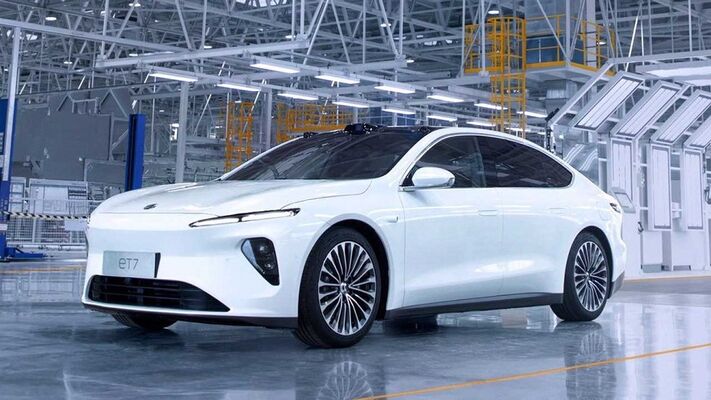CATL Starts To Reduce Costs For Batteries

CATL, the Chinese battery behemoth, is offering substantially reduced battery costs to a select few EV manufacturers like NIO and Li Auto to maintain their patronage.
This groundbreaking initiative is made possible through CATL's lithium rebate program, which aims to lower battery acquisition costs for their strategic clients.
Under this scheme, CATL will settle a portion of the EV battery cost with manufacturers at $42,975 AUD per ton of lithium carbonate for the next 36 months, while they will be obligated to purchase around 80% of their batteries from CATL. The program will be initiated in the third quarter of 2023, and a few car companies are already in the process of signing up for the cooperation, which is excellent news for prospective EV buyers.
Why is CATL Reducing Battery Costs?
CATL's decision to lower battery costs for specific EV manufacturers is taking place during a period when the industry is grappling with a massive increase in battery material prices, which includes lithium carbonate. Last year, the prices of battery materials surged by 40%, and smaller rivals of CATL bore some of these expenses themselves, instead of passing the entire increase to their customers.
CATL's strategy to lower battery costs is an attempt to uphold their competitive advantage against smaller competitors. The battery titan has requested their upstream suppliers to reduce prices by approximately 10%, which is an illustration of their pledge to offer cost-effective solutions to their clients. By proffering reduced battery prices, CATL aims to preserve their core customer base and perhaps draw in new customers, considering the global fervor for EVs.
How Will CATL's Reduced Battery Costs Affect the EV Industry?
CATL's reduced battery costs could impact the EV industry in several ways. Firstly, they could make EVs more affordable, which could augment their demand. This might result in amplified competition among EV manufacturers, as more companies enter the market, which could lead to more innovations and better EV technologies.
Secondly, CATL's reduced battery costs could put pressure on their competitors to follow suit. Smaller competitors may have difficulty keeping up with CATL's price cuts, leading to a shift in the market share in CATL's favor. This could be a promising development for CATL and their investors, as it could boost the company's revenue and market share in the EV industry.
Thirdly, CATL's decision to lower battery costs could also lead to enhanced collaboration between EV manufacturers and battery suppliers. Companies such as NIO and Li Auto may be more inclined to collaborate with CATL because of their cost-effective solutions. This could result in further technological advancements in the EV industry and better quality EVs for consumers.
What are the Potential Risks of CATL's Reduced Battery Costs?
Although CATL's reduced battery costs are likely to have positive implications for the EV industry, this move also poses certain risks. One risk is that it could result in a drop in the quality of CATL's batteries. If the company is cutting costs, they may be tempted to lower the quality of their batteries to maintain profitability.
Another potential risk is that CATL's decision to reduce battery costs could lead to a decline in innovation in the EV industry. If CATL's competitors cannot keep up with their price cuts, they may not be able to invest as much in research and development, which could limit innovation in the industry.
